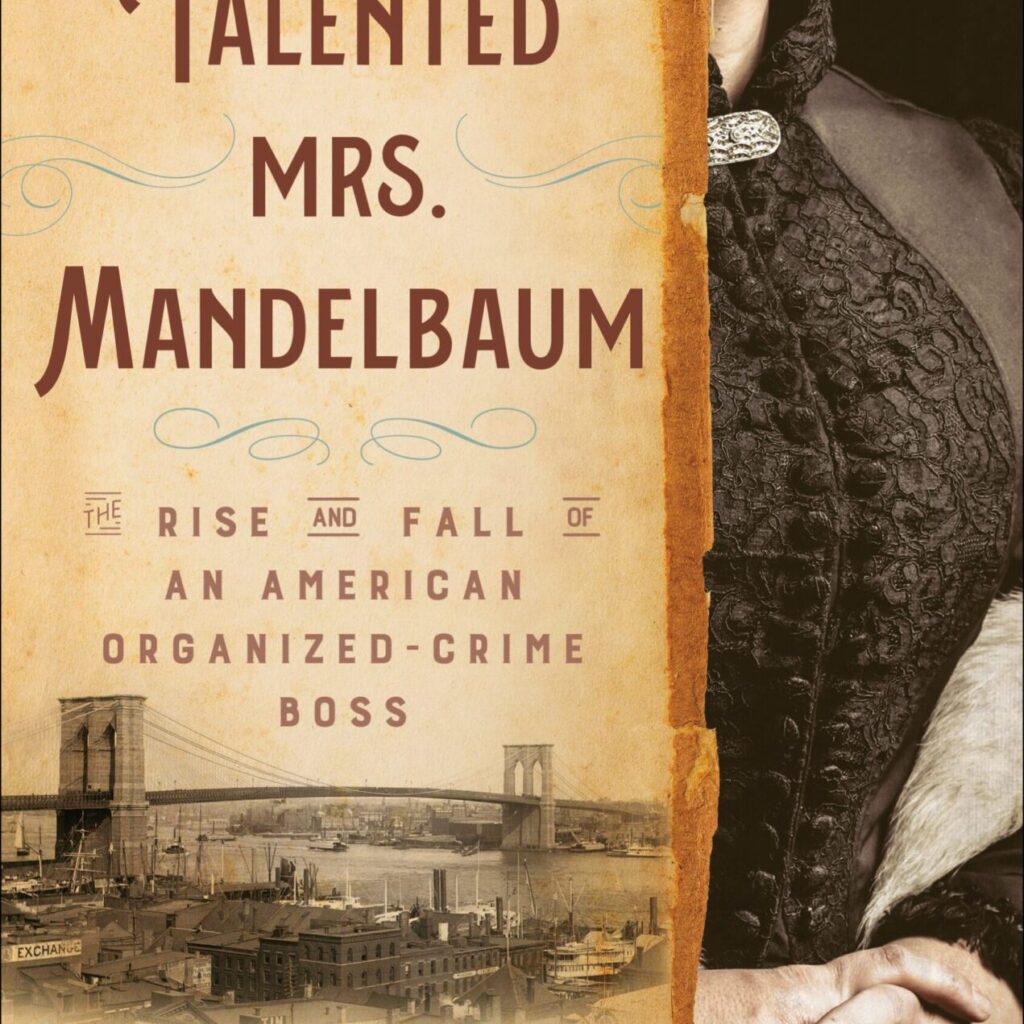
The Talented Mrs. Mandelbaum: A Journey Through Crime and Ambition
In the annals of American history, few figures are as enigmatic and compelling as Fredericka “Marm” Mandelbaum. Margalit Fox’s The Talented Mrs. Mandelbaum: The Rise and Fall of an American Organized-Crime Boss offers a fascinating glimpse into the life of a woman who defied societal norms to become one of the most notorious crime bosses in 19th-century America. This biography not only chronicles Mandelbaum’s rise from a struggling immigrant to a powerful figure in organized crime but also explores the intricate dynamics of gender, ambition, and morality in a rapidly changing society.
Summary of the Novel
Fredericka Mandelbaum immigrated to New York City in 1850, arriving in steerage with her husband and four children. The family faced immense hardships as they settled into the bustling, often unforgiving landscape of the Lower East Side. Initially working as peddlers, the Mandelbaum’s struggled to make ends meet. However, Fredericka’s resilience and sharp intellect set her apart.
By the 1870s, Fredericka had transformed her life, establishing herself as a prominent figure in both high society and the criminal underworld. She became the first widely recognized female crime boss in America, specializing in fencing stolen goods. Her haberdashery shop served as a front for her operations, where she orchestrated an extensive network of thieves and criminals. Fox paints a vivid picture of Mandelbaum as a shrewd businesswoman who systematized property crime, turning it into a lucrative enterprise that spanned across the United States.
Key Events and Plot Points
1. Immigration and Early Struggles
Mandelbaum’s journey begins with her arrival in New York as a penniless immigrant. The harsh realities of life in the Lower East Side shaped her resilience and resourcefulness. Faced with poverty and discrimination, she learned to navigate the complexities of her new environment, laying the groundwork for her future success.
2. Rise to Power
Through strategic alliances and her ability to navigate the criminal and legitimate worlds, Mandelbaum built a fencing empire, handling stolen goods worth millions. Her connections with corrupt law enforcement and politicians allowed her to operate with relative impunity. Fox highlights how she utilized her charm and intelligence to gain the trust of both criminals and respectable citizens, creating a façade of legitimacy that masked her illicit activities.
3. Lavish Lifestyle
Mandelbaum’s dual identity as a respected community member and a crime boss is exemplified through her extravagant social gatherings. These lavish parties attracted both the elite and the criminal underworld, blurring the lines between her criminal activities and her philanthropic image. Fox illustrates how Mandelbaum cultivated relationships with influential figures, using her social prowess to further her business interests.
4. Downfall
The narrative reaches a climax with her arrest in 1884 by the Pinkerton National Detective Agency. This pivotal moment illustrates the precarious nature of her empire. Despite her careful planning and extensive network, Mandelbaum was ultimately caught in the web of law enforcement’s crackdown on organized crime. Her subsequent trial and dramatic escape to Canada serve as a testament to her resourcefulness and determination to evade capture.
5. Legacy
The book concludes with Mandelbaum’s death and the lingering influence of her life in the annals of crime history. Fox explores how her story reflects broader themes of gender and power, illustrating the complexities of a woman who navigated the treacherous waters of ambition and crime. Despite her notoriety, Mandelbaum remains a largely overlooked figure in the history of organized crime, overshadowed by her male counterparts.
Themes
Gender and Power
Mandelbaum’s life story challenges traditional gender roles of her time. As a woman in a male-dominated society, she carved out a space for herself in organized crime, demonstrating that women could wield power in unconventional ways. Fox highlights how Mandelbaum’s identity as a Jewish immigrant further complicated her position in society, yet she managed to rise above these barriers. Her story serves as a powerful reminder of the potential for women to break free from societal constraints and assert their agency.
The American Dream
The narrative serves as a critique of the American Dream, illustrating how Mandelbaum’s success was built on illegal activities. Her story reflects the paradox of achieving wealth and status through crime, questioning the morality of the American capitalist system during the Gilded Age. Fox raises important questions about the nature of success and the lengths to which individuals will go to achieve their dreams, even when those dreams are rooted in illegality.
Crime and Society
Fox delves into the intricate relationship between organized crime and legitimate society. Mandelbaum’s ability to blend into high society while running a criminal enterprise reveals the corruption that permeated the political and social structures of the time. The book paints a vivid picture of Gilded Age New York, where crime and commerce often intersected. Mandelbaum’s story serves as a lens through which readers can examine the moral ambiguities of a society grappling with rapid change.
Conclusion
The Talented Mrs. Mandelbaum is a captivating exploration of a unique figure in American history. Margalit Fox masterfully weaves together historical facts and narrative storytelling to bring Mandelbaum’s life to the forefront. The book not only highlights her remarkable achievements as a crime boss but also poses critical questions about gender, power, and the nature of success in a society rife with contradictions.
Mandelbaum’s legacy, though overshadowed by more famous male counterparts, serves as a reminder of the complexities of the American experience, particularly for women who navigated the treacherous waters of ambition and crime. Fox’s portrayal of Mandelbaum is both a celebration of her audacity and a sobering reflection on the moral ambiguities of her life.
In a world where the lines between right and wrong are often blurred, The Talented Mrs. Mandelbaum invites readers to consider the multifaceted nature of ambition and the lengths to which individuals will go to carve out their place in history. This book is not only a biography but a compelling narrative that resonates with contemporary discussions about power, gender, and the American Dream, making it a must-read for anyone interested in the intersections of crime, society, and identity.

